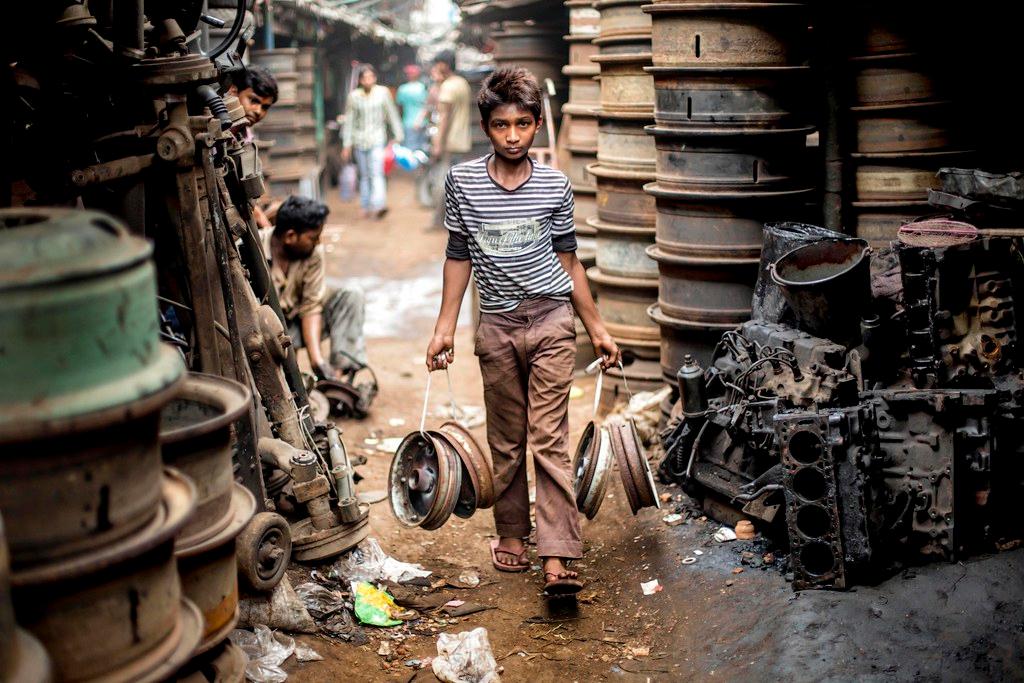Elections, economics, and Europe: Switzerland in 2019
On the global stage, economic shifts and European politics will set the tempo in Bern in the coming year. Domestically, the country is set to elect a new parliament. Here’s part two of our annual political preview.
Swiss foreign policy traditionally relies on diplomacy and neutrality: mediation, dialogue, global networking and the international city of Geneva. In a word, the country stands for multilateralism.
But multilateralism and dialogue have seen better days. A change in direction is underway, with a protectionist and hostile tone being heard among nations. ‘Every man for himself’ seems to be the watchword at all political levels, including the highest. And the trend is also making itself felt in Switzerland.
The UN migration pact, which Switzerland helped to formulate, has been sharply attacked in parliament. In 2019 the country may reject it altogether.
Another of the federal government’s pet projects – to secure a seat on the UN Security Council for 2023 and 2024 – may meet a similar fate. The conservative right People’s Party has come out against it, while debate in parliament will be intense; even parliamentarians from the political centre have expressed misgivings about the idea.
Finally, there is the never-ending story of relations with the European Union (EU). A draft framework agreement to govern how the EU and non-member Switzerland work together has now been made public, and the EU wants to know by June how Switzerland intends to proceed. It is doubtful if the new trend towards isolationism will help the two sides in finding common ground.
Switzerland is proud of its open economic system. Some of the corporations based in Switzerland are global players that enhance the country’s reputation. But the presence of multinationals can bring with it negative impacts. For one, corporations with global reach are often caught up in accusations of human rights violations and environmental damage in the countries in which they operate.
This is not just a Swiss problem, of course. But the country is at the cutting edge of discussions to improve the situation. The “corporate responsibility” initiative, sponsored by a coalition of NGOs with broad-based support among sections of the public, has been making waves. Parliament may adopt a counter-proposal in 2019 which takes many of the demands of the initiative on board.
The matter currently rests with a parliamentary committee, but should be back on the main agenda by spring 2019. After the parliamentary process it will be the people’s turn to decide, one way or another. The discussion promises to be lively and – whatever solution is chosen – is bound to have an effect on the image of Switzerland as a place to do business.
Swiss companies depend largely on exports: almost 50% of their turnover is outside the country. Due to this dependence, Switzerland is almost certain to be affected by the global economic decline expected in 2019.
A trade war between the US and China, the Brexit denouement, fear of a renewed debt crisis in Europe: these are some of the problems that could threaten the profits of Swiss companies, according to EconomiesuisseExternal link. The business lobby group has trimmed its growth forecast for the coming year to 1.4%, compared with 2.7% in 2018.
To compensate for weaknesses in the eurozone, Swiss companies are focusing more and more on the US, which is likely to remain the engine of global growth in 2019. Since 2010 Swiss exports to the US have jumped from 10% to over 15%; the trend is expected to continue.
In contrast with the crisis-prone EU, Switzerland’s most important trading partner, the Swiss franc will remain strong and continue to be a bolt-hole for currency investors. While overall, the Swiss economy has shown itself to be tough and resilient and may continue to make headway through the turbulence.
In 2019 the Swiss economy will become the responsibility of a different member of the government, Guy Parmelin of the People’s Party. Yet he is unlikely to steer a different course from the neo-liberal, hands-off policy of his predecessor Johann Schneider-Ammann. Parmelin will take charge of ongoing negotiations for a free-trade agreementExternal link with Vietnam, India and Malaysia.
On October 20 this year the Swiss will go to the polls to elect a new parliament. The 200 seats in the House of Representatives and the 46 seats of the Senate must be filled anew every four years.
And according to the latest electoral forecasts from Switzerland’s national broadcaster, the Swiss Broadcasting Corporation (SBC), the leftwing Greens and centre-right Radical-Liberals could increase their share of the popular vote, while the People’s Party and the centrist Christian Democrats may both lose ground.
The main battleground in these elections is likely to be the future makeup of the Senate – despite its small size – since many sitting senators will not be seeking re-election. Power relations could shift, especially as quite a few of the leftwing Social Democrats’ senators are standing down.
The elections will also once again highlight the issue of transparency in political funding: the campaigns will involve an outlay of about CHF50 million ($50.7 million).
As for the Swiss abroad, they are eligible to stand for the House of RepresentativesExternal link, while some cantons allow them to stand for the Senate too. In terms of voting rights, the situation is the same: they can vote for House of Representatives candidates, and in some cantons for the Senate too.
In 2019 we will also be concerned with the issue of e-voting: the debate has recently heated up following canton Geneva’s abandoning of its experimental online voting system.
And while Swiss abroad have launched a petition to introduce a nationwide e-voting option for expatriate citizens, opponents will launch a people’s initiative in 2019 to ban online voting altogether.
Translated from German by Terence MacNamee, swissinfo.ch

In compliance with the JTI standards
More: SWI swissinfo.ch certified by the Journalism Trust Initiative





You can find an overview of ongoing debates with our journalists here. Please join us!
If you want to start a conversation about a topic raised in this article or want to report factual errors, email us at english@swissinfo.ch.